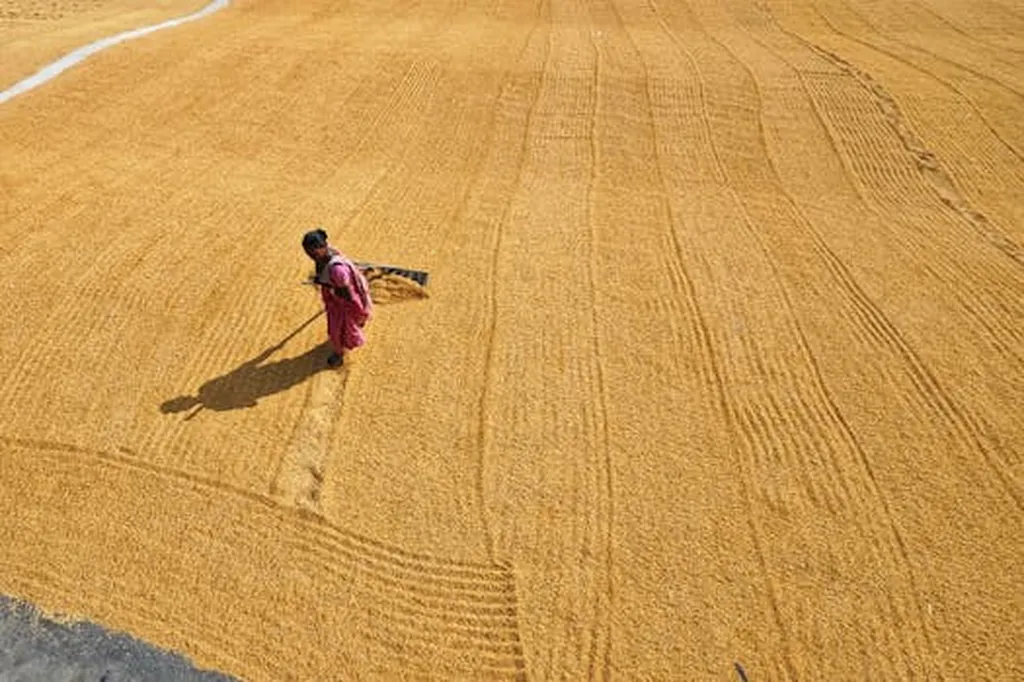In the heart of India’s rice-growing regions, a tiny microorganism is making a big splash. Researchers have discovered that a locally isolated methanotroph, a bacteria that consumes methane, can significantly boost rice yields while potentially reducing greenhouse gas emissions. This promising finding, published in the journal *Microbiology Research*, opens new avenues for sustainable agriculture and climate-smart farming practices.
The study, led by Shubha Manvi from the MACS Agharkar Research Institute in Pune, India, focused on the methanotroph *Methylomonas* Kb3. When rice plants were treated with this bacterium, they showed remarkable improvements. “We observed early flowering, increased plant height, and a grain yield up to 17% higher than untreated controls,” Manvi explained. This is a substantial increase, especially considering the modest investment required for such a bio-inoculant.
The research also explored the combined use of *Methylomonas* and another methanotroph, *Methylomagnum*. While this mixed inoculation resulted in a 15% yield increase, it was less effective than using *Methylomonas* alone. This suggests that while synergistic effects exist, they may be limited and context-dependent.
One of the study’s practical contributions is the development of a simple and scalable inoculation technique. The root-dipping method, where rice seedlings are dipped in a solution containing the methanotrophs before transplantation, proved to be both effective and farmer-friendly. This ease of application could facilitate widespread adoption, a critical factor for any agricultural innovation.
Genomic analysis of *Methylomonas* Kb3 revealed genes associated with nitrogen fixation, heavy metal resistance, and antibiotic resistance. These genetic traits may contribute to the bacterium’s ability to enhance plant growth and survive in challenging environments. “The presence of these genes suggests that *Methylomonas* Kb3 could be a robust and versatile bio-inoculant,” Manvi noted.
Beyond yield enhancement, the application of methanotrophs in rice fields offers environmental benefits. Rice paddies are a significant source of methane emissions, a potent greenhouse gas. By consuming methane, these bacteria could help mitigate climate change while boosting productivity. This dual benefit aligns with the growing demand for agricultural practices that are both profitable and sustainable.
The study’s findings are a stepping stone toward developing climate-smart biofertilizers. However, more research is needed to validate the efficacy of these methanotrophs across diverse agro-climatic zones. Multilocation trials will be crucial in assessing their performance under various conditions and ensuring their widespread applicability.
For the agriculture sector, this research holds significant commercial potential. Bio-inoculants like *Methylomonas* Kb3 could provide farmers with a cost-effective and environmentally friendly tool to enhance yields and reduce input costs. As the global population grows and climate change intensifies, such innovations will be vital in ensuring food security and sustainable agriculture.
In the words of Shubha Manvi, “This research is just the beginning. The potential of methanotrophs in agriculture is vast, and we are excited to explore it further.” With continued investment and research, these tiny bacteria could play a significant role in shaping the future of farming.

